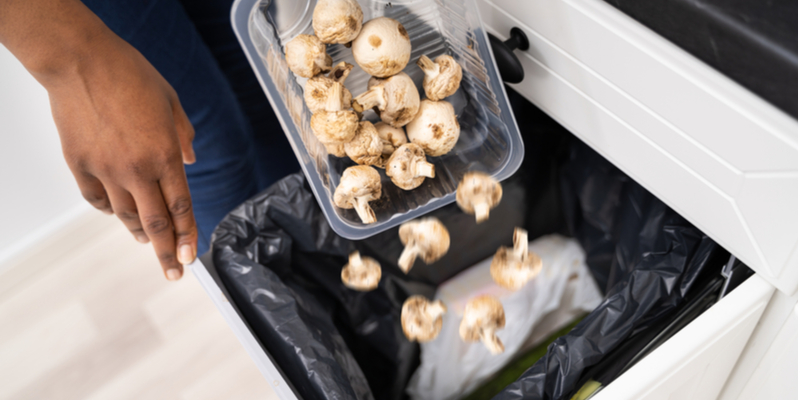Research project
Capitalising on COVID-19 as a Trigger for Positive Change in Food Waste Behaviour
- Start date: 2 November 2020
- End date: 1 May 2022
- Funder: Economic and Social Research Council (ESRC)
- Principal investigator: Dr Gulbanu Kaptan (Leeds University Business School)
- Co-investigators: Dr Sally Russell (School of Earth and Environment)
Professor Kerrie Unsworth (Leeds University Business School)
Dr Tom Quested (Waste and Resources Action Programme - WRAP)
Partners and collaborators:
Keith James (WRAP)
Dr Eleanor O’Rourke (Zero Waste Scotland)

Description
The COVID-19 lockdown has been a big contextual change in people’s daily lives. However, it has resulted in positive changes in food waste-related behaviours as indicated in the reports of the Waste & Resources Action Programme (WRAP) and UK media (WRAP, 2020; Guardian, 2020). For example, UK consumers reported an increased awareness and willingness to minimise household food waste leading to a 34% reduction in food waste across four key products (bread, milk, potatoes, and chicken) compared to the average across 2018-2019.
While the changes seen during the COVID-19 lockdown are promising, behaviour change resulting from temporary contextual changes may not last long (Fuji et al., 2001).
Therefore, we aim to harness the positive changes in food waste behaviour and investigate opportunities to sustain this change over the long term. We need to understand the causal factors underpinning the positive change (which cannot be deduced from previous research) and trial interventions to capitalise on them. Our partnerships with WRAP and Zero Waste Scotland ensure that the project will be based on both cutting-edge academic expertise, and practical relevance and feasibility knowledge.
The outcomes of the project will have a positive economic impact on UK consumers’ cost savings in relation to their food shopping, as well as an environmental impact on the amount of resources and inputs required, and greenhouse gas emissions generated, by not producing food that becomes waste.
This project is funded by the Economic and Social Research Council (ESRC), as part of UK Research and Innovation’s rapid response to Covid-19.

Publications and outputs
Presentation slides:
-
Capitalising on Covid-19 as a trigger for positive change in food waste behaviour – University of Leeds and WRAP, April 2022
Media coverage:
- Launch of project (January 2021): Resource, Food Ingredients First, The Spoon, Circular
- Cut food waste at home by sniffing and tasting, urges new campaign, The Guardian, January 2021
Blog posts:
-
Capitalising on COVID-19 as a Trigger for Positive Change in Food Waste Behaviour, Research and Innovation Blog, May 2021

